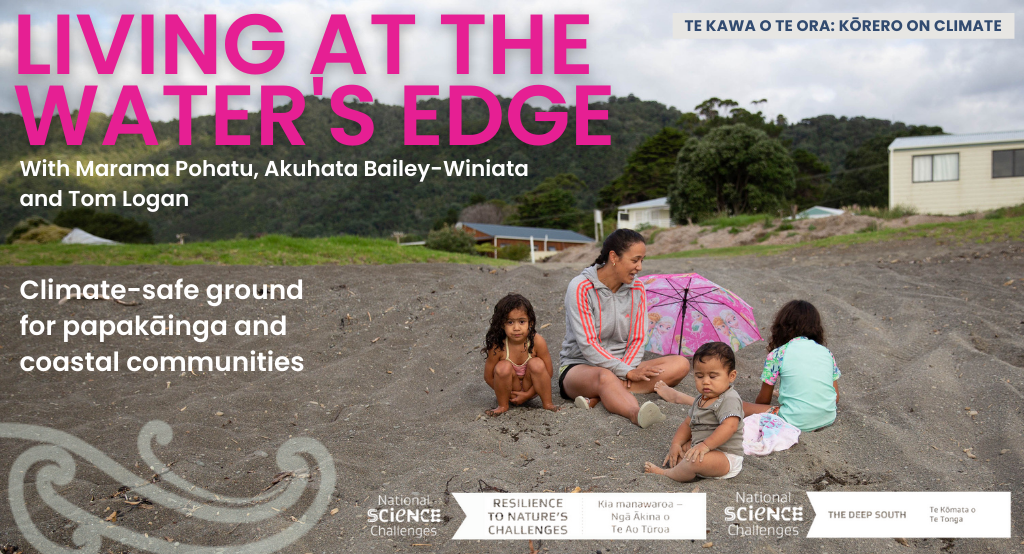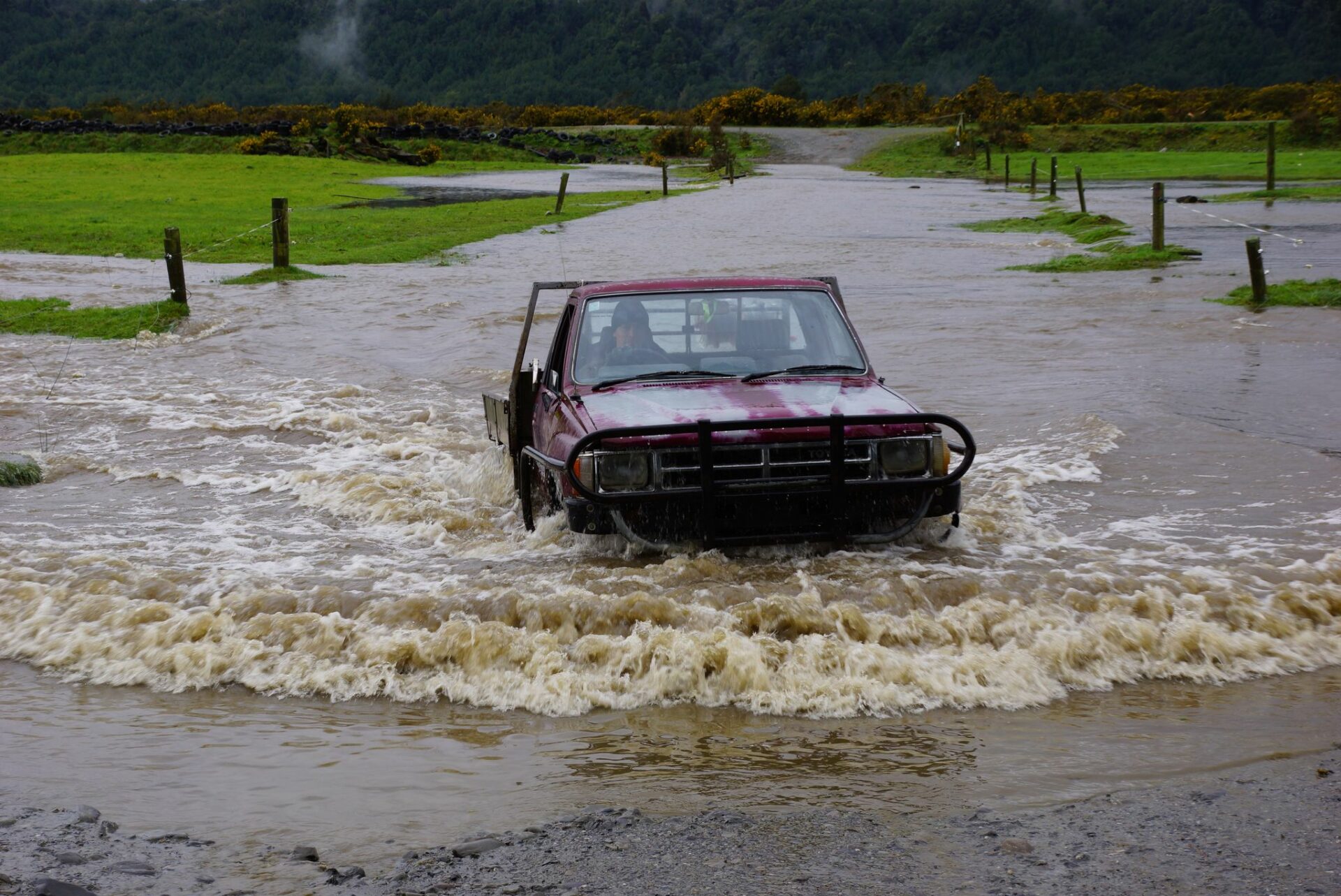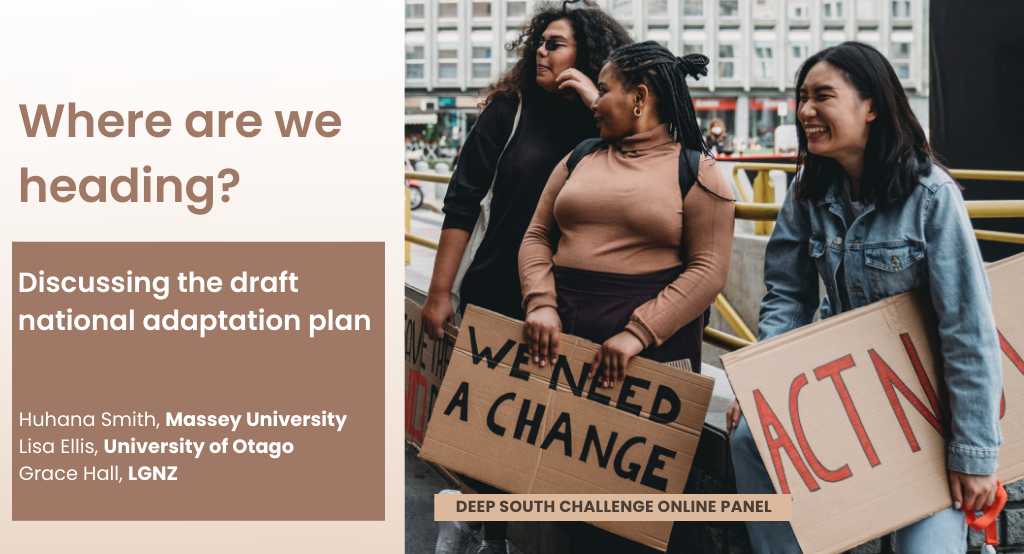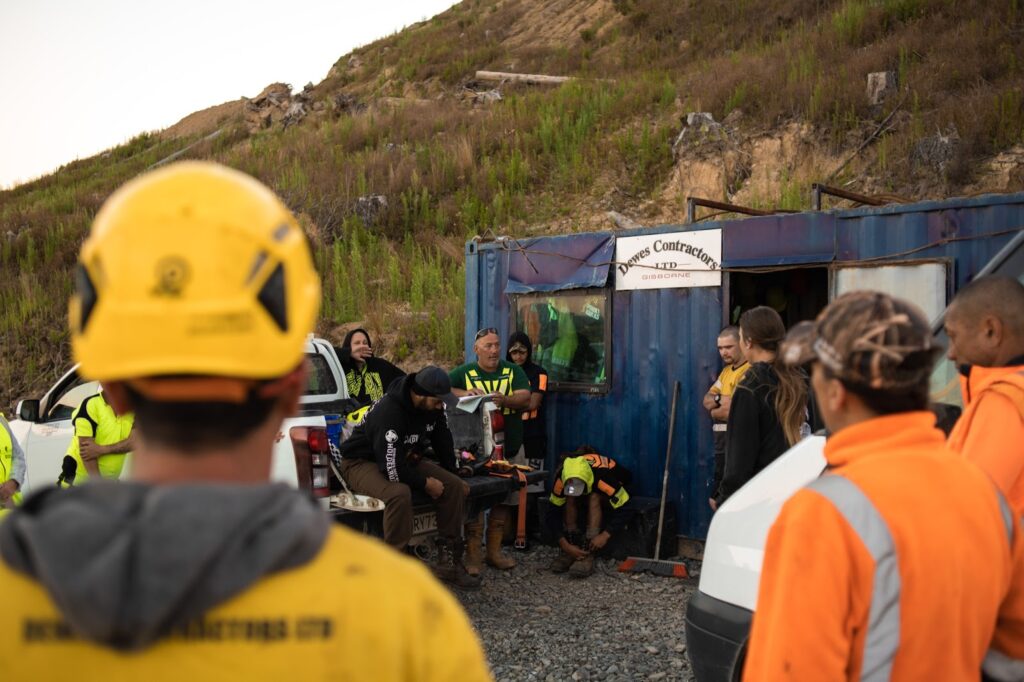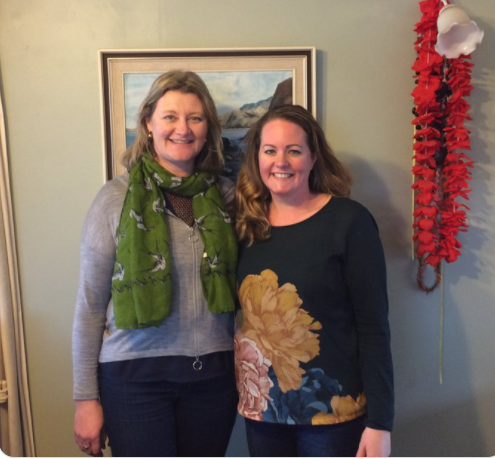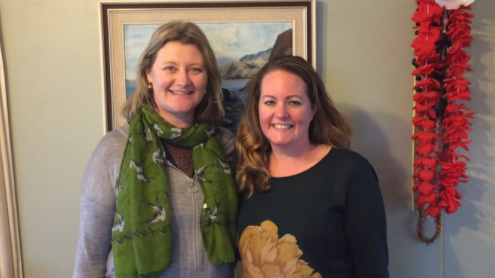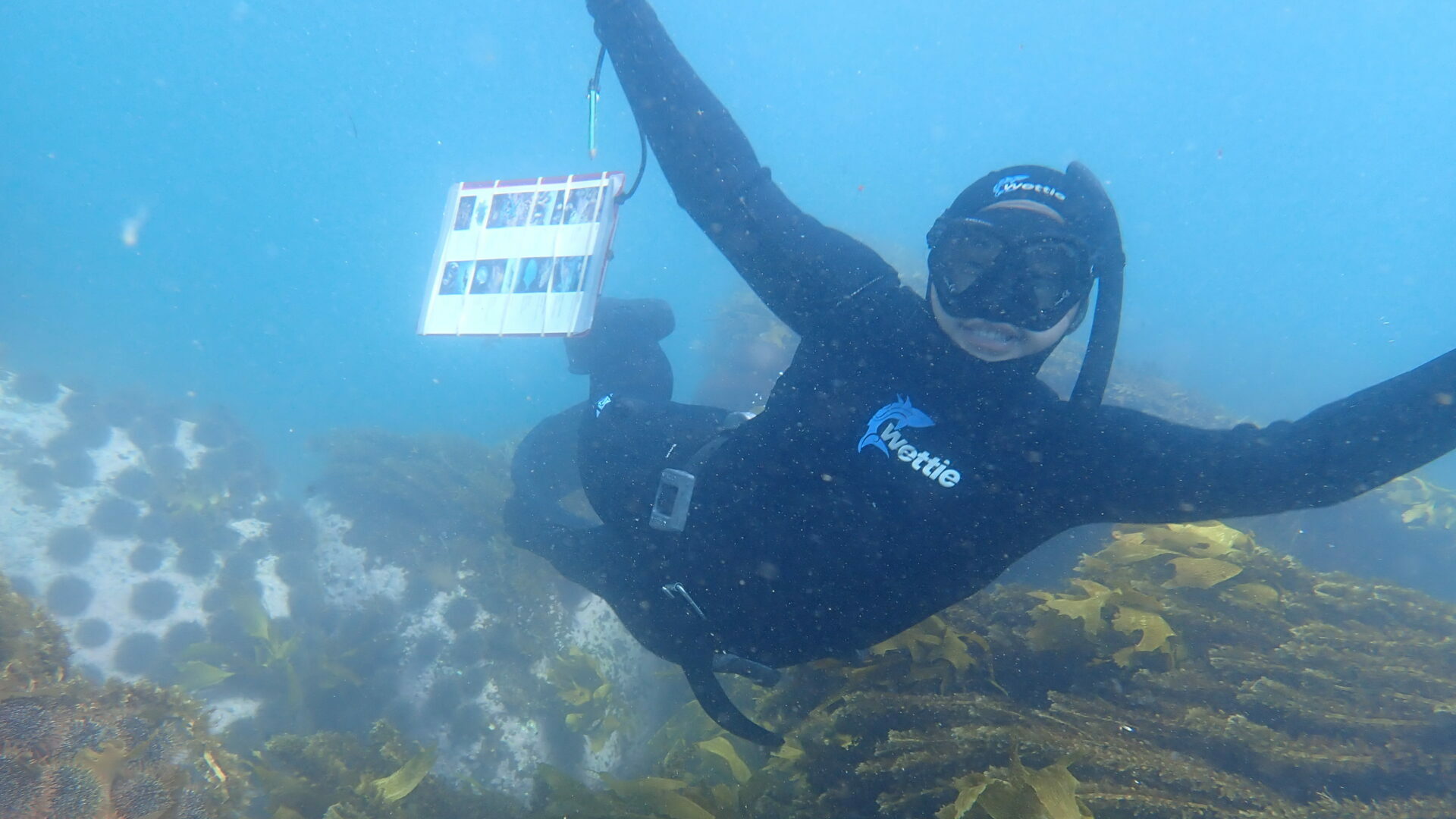
Tīmatanga kōrero | Introduction
Kōtuia ki te aho rangahau kia mau ai,
whiria te taura mātauranga kia ita
Sew the thread of research to maintain,
plait the rope of ancestral knowledge to bind and sustain.
(Composed by Ruia Aperahama)
This whakatauākī speaks to the deep knowledge, skills and experience Māori communities possess and draw on when responding to the changing world. The whakatauākī formed the basis for our most recent Māori research funding round within the Vision Mātauranga programme in Te Kōmata o te Tonga, the Deep South Challenge: Changing with our Climate. It is these recent experiences we draw on in this submission – as a kind of “case study” – to Te Ara Paerangi: Future Pathways Forward Green paper.
We are grateful for the opportunity to feed into much-needed change in the Research, Science, and Innovation System in Aotearoa, and we understand that this will be one of many opportunities to do so. It is our hope that this process will result in transformations that speak to the needs and aspirations of Māori communities and Māori researchers.
This submission sits alongside the broader The Deep South Challenge: Changing with Our Climate submission to Te Ara Paerangi Future Pathways Green Paper.
Ko wai mātou? | Who are we?
The Vision Mātauranga programme is advised by a Kāhui Māori with the leadership of a Programme Lead, and staffed by two Kaitakawaenga, with the support of the broader engagement team. We recognise the responsibility and obligations we have to Ahi kā, Ahi tere, Ahi taitai, Ahi tahutahu, Ahi whakaene, Ahi kōmau, Ahi hinu, Ahi Kōpae, Ahi kāroa. We want to support the work Māori are already undertaking not just to survive, but to flourish and thrive against a background of broader environmental, social, and global changes.
Within this programme we seek to support organic, creative, innovative and Māori responses to the impacts of climate change. We recognise the diversity of experience, knowledge, and responses to climate change across and within ngā iwi and hāpori Māori.
We are a member of the Rauika Māngai and note that many aspects of our submission are reflected in theirs. We also note that there may be a requirement for a systems change which is reflected in the communities and echoed in the findings of our own internal evaluation. We realise that this will have implications for the Deep South Challenge, but we are poised to work through whatever those implications might be.
Summary of Key Points
Climate change threatens every thread of the fabric of Māori society, and for this reason we believe consideration of climate adaptation research funding must be a part of the MBIE review. Of import here is a piece of internal research recently carried out by our broader Engagement Team, led by our Climate Change Knowledge Broker. We conducted a “landscape mapping” project to review and understand the broad split of research funding within the climate change research space. While a pilot project only, with data limitations, a key finding was that Māori climate research (defined as “by Māori for Māori”) has been and is being underfunded in comparison with other research disciplines.
Any re-design of the science system needs to directly address structural inequity and to empower iwi, hapū and Māori communities to undertake their own research. Mātauranga exists in and of its own right. It is an intellectual tradition, containing robust and innovative research processes and creative solutions to the challenges of the world. The RSI must recognise and provide for this mātauranga, for its own ends and purposes. Furthermore, this space must be protected from the inevitable creep that occurs by researchers seeking to ‘claim’ this space. Historical experience has proven that upholding mātauranga and tikanga Māori, while embracing the benefits of other knowledge systems, allows us to adapt and strengthen ourselves in a world that is forever in motion.
“We must consider how to embed Te Tiriti within the fabric of the research system, in decision making, in our processes, in collecting advice and information, in our workforce, and in research outcomes. We need to consider the diverse ways in which Māori organise as iwi, hapū, whānau, businesses, interest groups, subject matter experts, researchers and as individuals. We need to reimagine how to give life to Māori research aspirations, the right ways to enable mātauranga Māori – Māori knowledge – in our research system and the interface between mātauranga Māori and other activities in the system.”
Green Paper
These aspirational statements in the Green Paper suggest that the possibilities for fundamental change are being offered. Expectations are being raised. Everyone working within the science system, and those who are alienated from the science system, must have an equitable opportunity
to consider and respond to the Paper.
The RSI system needs to do things differently for Māori. This submission prioritises relationships and engagement with Māori communities, mātauranga Māori being invested in and of its own right, the importance of rethinking common research policy and practice at every level and transforming decision making power over research systems and processes to be more equitable and to uphold Te Tiriti o Waitangi.
It is the heart of our submission, based on our experiences and learnings, that power for all decisions about research on Māori must be returned to whānau, hapū and iwi. The structures and processes that are charged with enacting all parts of a reformed science system then must also account for this. Our experience has also told us that research priorities for iwi and hapū are usually on a much longer timescale with deeper and broader reach, in other words are intergenerational and holistic in nature. Defined research priorities or research agendas tend to be responding to a much shorter timeline and assessed against KPIs on an annual or quarterly basis. Impact for Māori research can often be seen over generations and in ways that do not fit the conventional science measures of assessment. Often a research project might ‘end’ but the kaupapa does not.
Key Messages
- Māori communities are on the frontline, in every way, of climate change. Climate change research must be considered urgently and separately within the process of the reform of the RSI sector. The ways in which Māori consider climate change – including as a continuation of colonisation and of other kinds of environmental degradation must be the starting place when building a research system to enable whānau, hapū and iwi to adapt to the drastic changes ahead of us.
- Current underinvestment must not only be reversed, but it must also be significantly ramped up, to provide Māori with all the tools they need – mātauranga and contemporary science – to have agency over their future.
- Challenging common practices embedded within science funding systems and structures requires a commitment to equity. This commitment must be coupled with serious investment and care (time and resource), at every stage, and at all points of decision making.
- The quality of engagement with hapū-embedded researchers is determined by the quality of relationships. Relationships must be genuine (emphasising common connections and shared goals), rather than transactional. Reforming the science system to prioritise relationships and relationality (rather than dealing in transactions of funds, of knowledge, of people) is key.
- Common research funding practices privilege hierarchical and individual modes of working, rather than collaborative and collective (i.e., whānau and hapū) modes. To achieve different (and better) outcomes for Māori (both researchers and research communities), the recognition of and investment in the expertise that exists within Māori communities and structures must be provided for. Rather than privileging individuals and individual merit (e.g., qualification and publication record), a consideration of the collective production of knowledge and of truly collective research must have a place in our research and science future.
- Written proposals and applications – with little to no face-to-face contact with decisionmakers remain the norm and serve some teams better than others. It is unclear if written proposals ensure that the strongest research is funded, or if successful proposals are those best articulated using the conventions of institutional science.
- Despite how inclusive or flexible the RSI system may intend to be (currently), the balance of power to determine and interpret priorities and scope still ultimately lies with the funder/institution. Most parts of the RSI system do not provide for Māori to determine the scope, priority areas or process and criteria of funding. Interrogating power at all levels of the system is a must. As Linda Tuhiwai Smith (a member of our International Science Panel) states: “It [-scientific] research is imbued with an ‘attitude’ and a ‘spirit’ which assumes a certain ownership of the entire world, and which has established systems and forms of governance which embed that attitude in institutional practices. These practices determine what counts as legitimate research and who count as legitimate researchers. Before assuming that such an attitude has long since disappeared, it is often worth reflecting on who would make such a claim, researchers, or indigenous peoples?” (Tuhiwai-Smith 2012, 56).
- Mātauranga Māori is sometimes misunderstood as being any research carried out by Māori researchers. There is also a tendency to make false equivalences between mātauranga and scientific understandings. Mātauranga Māori and Kaupapa Māori research must be prioritised and invested in, in and of its own right, not just as something to be added-on, ‘integrated’ (or even worse, validated) by scientific research.
- Genuine engagement with Māori communities is critical, and achievable, but comes with responsibilities, including:
- a requirement for sufficient resourcing
- transparency, openness, and a willingness to challenge common practices
- not raising expectations that cannot be fulfilled
- Being responsive, flexible and innovative to find new ways of doing things or to change when needed.
- a commitment to reciprocity of some kind
- Without serious structural change, altering processes and making changes at the fringes can set Māori up to take responsibility for system failures.
- Māori communities have proven that they are ready and capable of doing high quality and robust research at this level and there is an urgency to make systemic changes to support this to occur.


